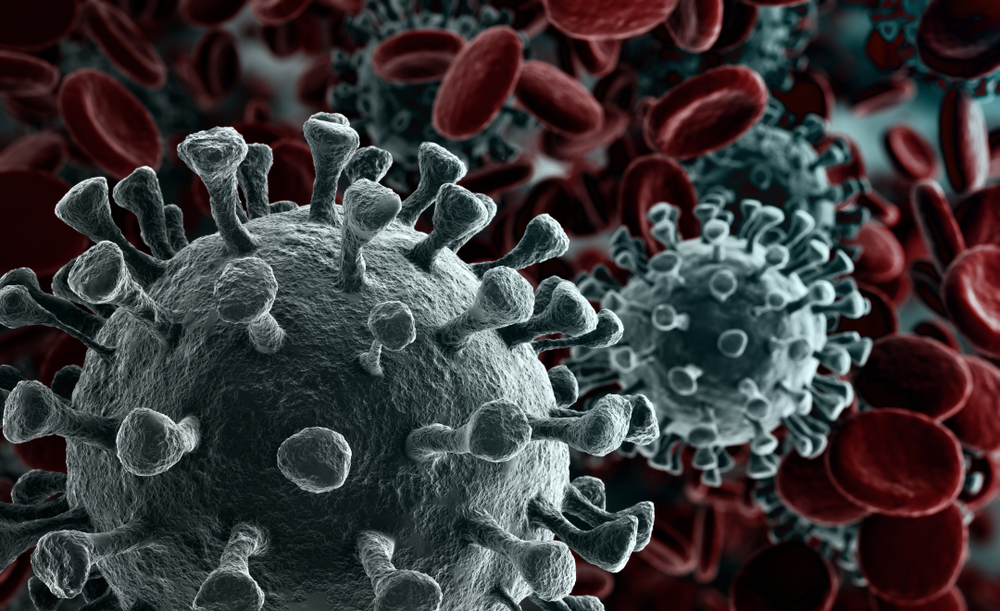More Studies Circulate Information on COVID-19 Spread Aboard Aircraft

Conflicting opinions are once again front-and-center in the debate over mask usage on aircraft. A study by the U.S. Department of Defense and United Airlines says face covering usage is the best way to ensure safe travels, while an American infectious disease specialist says a previous set of studies have “bad math” attached to them.
Is wearing a face covering a worthwhile cause aboard an aircraft? While all of the major airlines require it, and multiple studies on the subject says it’s the best way to prevent infection in a close, contained space, there are still some questions on the efficacy of research done about the potential spread of COVID-19 on an aircraft. While the U.S. Department of Defense and United Airlines now say wearing face coverings provides a “99.99 percent” reduction in aerosols, an infectious specialist leader is throwing doubt onto a different one.
DOD-United Study Uses Simulations to Understand Human Aerosols
To better understand how human-produced aerosols travel through an aircraft cabin, the DOD worked with United to set up hundreds of dummies in both a Boeing 767-300 and 777-200. Over eight days of testing, a number of the dummies would “cough” a fluorescent aerosol trainer. The trials were conducted with the analogs in 11,500 “breathing zone” seat measurements, across 46 seats in both airframes.
When the dummies coughed, the study showed that those wearing a face covering had “significant protection against micron diameter droplets.” Moreover, the combination of face coverings and continually recycled air through HEPA filters suggests that even on a 12-hour flight, passengers had an “extremely unlikely” aerosol exposure risk. While it stopped short of ruling out novel Coronavirus infections from aircraft exposure, the study did suggest that the safety measures can help reduce those odds greatly.
“An average 99.99 percent reduction was measured for the 40+ breathing zones tested in each section of both airframes,” the study found. “Rapid dilution, mixing and purging of aerosol from the index source was observed due to both airframes’ high air exchange rates, downward ventilation design, and HEPA-filtered recirculation.”
Other Studies Given Concern Over “Bad Math”
While the DOD study was certainly encouraging, another set of studies may be thrown into question, after an infectious disease specialist claims a set of data presented by the International Air Transportation Association (IATA) used “bad math.” Reuters reports Dr. David Freeman refused to participate in a presentation that used findings from all three major aircraft manufacturers, which cited his work.
In their report, the IATA said the low transmission numbers from all three studies aligned with a peer-reviewed study written by Freeman. But in comments to Reuters, the professor from the University of Alabama said he “objected” to their title.
“It was bad math,” Freeman said in an interview with the news agency. “1.2 billion passengers during 2020 is not a fair denominator because hardly anybody was tested. How do you know how many people really got infected?”
Although the comments only pertain to how IATA presented their data, its not the first time research has been called into question. In an experimental piece published by an academic at the Massachusetts Institute of Technology, a mathematical model predicted the odds of contracting COVID-19 from passenger contact aboard an aircraft was as low as 1-in-6,400.























And Vargha - please believe me when I say I want to respect your rights and freedoms. I really do. However the problem we all face with that at the moment is that as a 'pro-mask' person, I feel people who don't chose to wear a mask in public are (indirectly) encroaching on my freedoms and rights -my right to good health. As to which side of the argument is correct....who knows! At this stage it seems too early to tell as the results of testing seem to vary from study to study. Masks certainly do not 'prevent' the spread of the virus, but they do limit/reduce the chances of spreading the virus. Perhaps in the short term, some airlines could operate as 'mask optional' with others being 'mask mandatory'? I'm not sure if that is a financially viable or practical option (as many airline travelers are loyal to certain airlines) - but it would at least allow for 'choice' when wanting to fly. The existence of this darn Covid-19 is so very frustrating! I'm not sure if that
Everyone is free to choose to fly. Go out and fly. The airlines were not, are not, and were never shut down. No one, absolutely no one, is taking away your choice to fly (domestically). On the other hand, preaching "freedom" is not going to make 50% of the public fly again. And airlines will go bust if all they have is half their previous customer base. If you're free to fly, I'm free to stay home. Guess what. Lots of people think the same way and will choose to stay home. Their choice right? Freedom. The bottom issue is not freedom. It's economics and the virus.
And Annie, that is your prerogative. All millions of us are asking is to stop taking away our choice.
This is an experiment in progress. What we need to do is have those stakeholders go through ticketing, baggage check,TSA and be on a 12 hour flight in the middle seat of coach without a mask with someone who has covid in their mix? Until the stakeholder are willing to use their own product I’m not going to.
So using 1 in 6,400 and the fact that 2.5 million flew yesterday it would denote only 390 should be infected on a plane every day. Thanks..........I'll stay home until the vaccine comes as well if they cough while they are eating or drinking then those numbers get even worse. And we all trust our fellow man don't we?